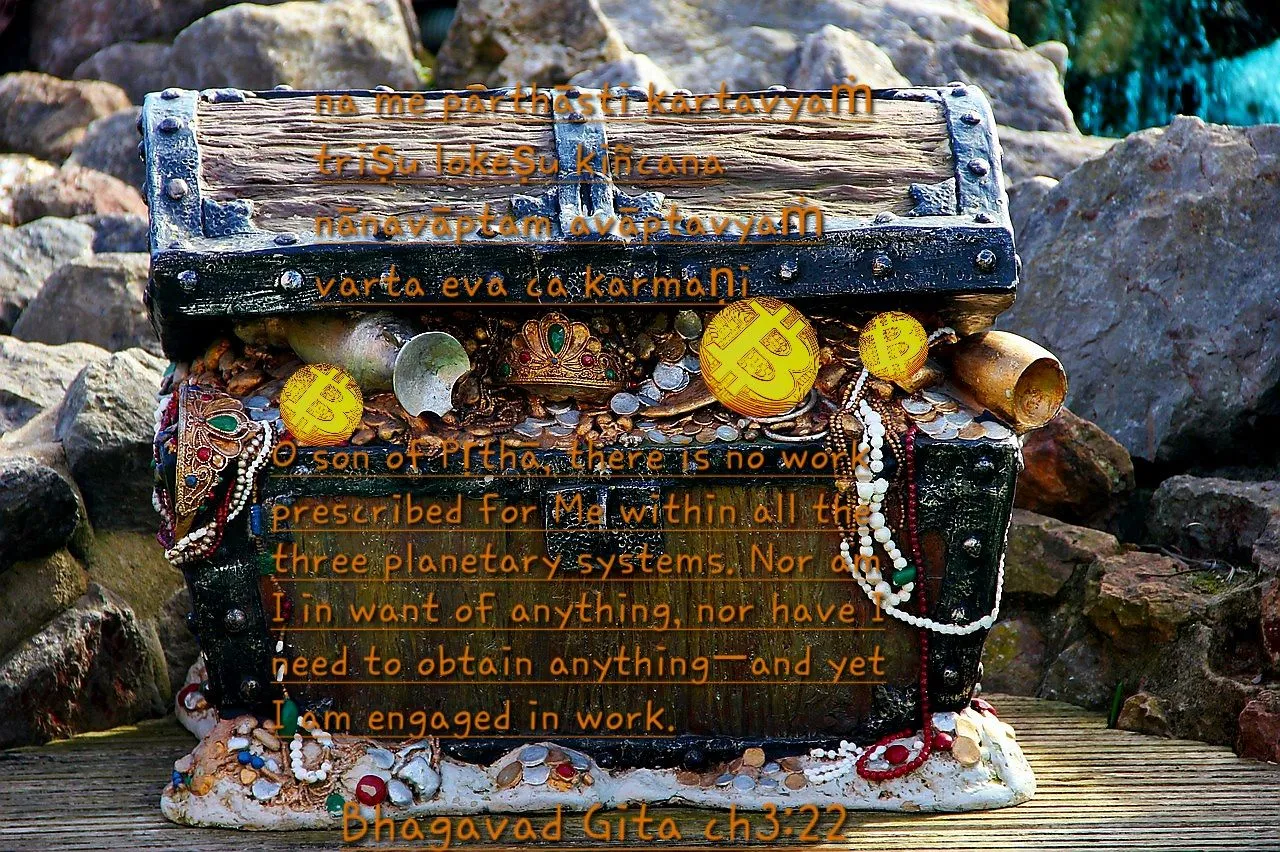What do you give the one who has everything? Or what can you give the one who is everything?

Everything in existence originated from one original source. The cause of all causes. Including us. Does that mean we are but part and parcel of the source? Yes, we are akin to a fractal, a hologram.
The absolute, the source, is within us all. We are an expression of the marginal energy of the source, called "tatasta shakti" in the Sanskrit texts. Then there is the internal (bahiranga) spiritual realm, and the external (antaranga) material realm. All these three are different manifestations coming from the one original source.
Or so it's described in the ancient Sanskrit texts on consciousness.
All is one, yet also inconceivably simultaneously different. This is the philosophy of the synthesis between non dual (adwaita) and dual (dwaita). It's also described as "achintya bedhabedha tattva".
So we originate from the source, yet are not the same as that source in quantity, only in quality - pure eternal spirit. However, we are very small and localized, compared to the source who is vast and all-pervading.
And the source is the origin and possesor of all opulence, known in Sanskrit as Bhagavan. Do what can one give the one who has everything?
The answer is love. That's all we have to give ultimately. And we can express our love through service. We can be the flute through which Krishna plays the tune that emanates the Vedas, the frequency of spirit, shabdha brahman.

Bhagavad Gita ch3:22
na me pārthāsti kartavyaṁ
triṣu lokeṣu kiñcana
nānavāptam avāptavyaṁ
varta eva ca karmaṇi
SYNONYMS
na—none; me—Mine; pārtha—O son of Pṛthā; asti—there is; kartavyam—any prescribed duty; triṣu—in the three; lokeṣu—planetary systems; kiñcana—anything; na—no; anavāptam—in want; avāptavyam—to be gained; varte—engaged; eva—certainly; ca—also; karmaṇi—in one's prescribed duty.
TRANSLATION
O son of Pṛthā, there is no work prescribed for Me within all the three planetary systems. Nor am I in want of anything, nor have I need to obtain anything—and yet I am engaged in work.
PURPORT
The Supreme Personality of Godhead is described in the Vedic literatures as follows:
tam īśvarāṇāṁ paramaṁ maheśvaraṁ
taṁ devatānāṁ paramaṁ ca daivatam
patiṁ patīnāṁ paramaṁ parastād
vidāma devaṁ bhuvaneśam īḍyam
na tasya kāryaṁ karaṇaṁ ca vidyate
na tat-samaś cābhyadhikaś ca dṛśyate
parāsya śaktir vividhaiva śrūyate
svā-bhāvikī jñāna-bala-kriyā ca.
"The Supreme Lord is the controller of all other controllers, and He is the greatest of all the diverse planetary leaders. Everyone is under His control. All entities are delegated with particular power only by the Supreme Lord; they are not supreme themselves. He is also worshipable by all demigods and is the supreme director of all directors. Therefore, He is transcendental to all kinds of material leaders and controllers and is worshipable by all. There is no one greater than Him, and He is the supreme cause of all causes.
"He does not possess bodily form like that of an ordinary living entity. There is no difference between His body and His soul. He is absolute. All His senses are transcendental. Any one of His senses can perform the action of any other sense. Therefore, no one is greater than Him or equal to Him. His potencies are multifarious, and thus His deeds are automatically performed as a natural sequence." (Śvetāśvatara Upaniṣad 6.7-8)
Since everything is in full opulence in the Personality of Godhead and is existing in full truth, there is no duty for the Supreme Personality of Godhead to perform. One who must receive the results of work has some designated duty, but one who has nothing to achieve within the three planetary systems certainly has no duty. And yet Lord Kṛṣṇa is engaged on the Battlefield of Kurukṣetra as the leader of the kṣatriyas because the kṣatriyas are duty-bound to give protection to the distressed. Although He is above all the regulations of the revealed scriptures, He does not do anything that violates the revealed scriptures.
Reference: Bhagavad Gita As It Is, translation and commentary by Swami A C Bhaktivedanta, original MacMillan edition 1972, freely available at prabhupadabooks.com.
Images: https://pixabay.com/photos/idol-hinduism-god-india-1834688/
https://pixabay.com/photos/chest-treasure-pirate-money-box-4051166/